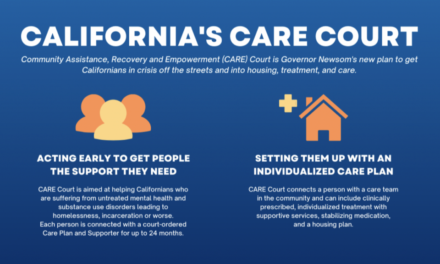
By Special to the AFRO
I Déjà vu once in a while. I’ll walk into a room, I’ll hear something said or travel down a certain street and I get a sense of familiarity, a sense that I’ve been here before.
Those incidents are innocent, harmless, they neither influence nor impact lives, its just a familiar feeling.
As we look at the political theater, observe the dynamics of social injustice, the protests, the demonstrations, the marches and arrests, and the deafening silence of the church, the White evangelicals, we kinda get a sense of déjà vu; we have been here before.
America is a great nation; it has never ceased to be a great nation. The character of greatness is that a person, or in the case of America, a nation is able to take an honest look at themselves, accept that mistakes have been made, learn from the mistakes and implement policies, procedures or legislation that moves it toward doing it better.
We made mistakes from the beginning. The eventual annihilation of the indigenous that welcomed the early settlers; the importation of millions of Africans for forced labor; the denial of their humanity the most egregious. Slavery became an issue that divided the nation and led to a war in which brother fought brother; 600,000 American perished.
We made the mistake of denying the humanity of the former enslaved, denied their inalienable rights, denied them equality, the right to vote, the right of unencumbered freedom; it’s a reality, it happened. It was a mistake. I found these three quotes about learning from mistakes: 1) mistakes have the power to turn you into something better than you were before, 2) mistakes are meant for learning not repeating, and 3) remember that life’s greatest lessons are usually learned at the worst times and from the worst. Great counsel for America.
Our homes and our churches shape the values and character of the generations that move and shape and set the tone and direction of our country; our schools churn out the leaders of today and tomorrow, how they think is formed by what they are taught and study, how effectively and honestly the narrative of America is presented is critical to the development of good leaders.
Suddenly America is embarrassed by the realities of our past. Legislators and educators want to prohibit the learning of true and unpolished history, how this great nation was built, how certain ideologies and practices worked to the advantage of some and as an impediment to others. They want to sanitize reality so that no one will be made to feel uncomfortable. Miseducation will have, as it has , a deleterious effect on the thinking and intellect of generations forward and perpetuate flawed ideologies.
The behaviors now on full screen of the social and political theater are the result of the miseducation of former generations; instead of teaching the truth about our past, the egregious brutalities of slavery juxtaposed with the prosperity and innovations of the American experiment, instead of overlaying the teaching of the glory of America with the atrocities of reconstruction, the Black Codes and Jim Crow, history has been presented as an unrealistic story of White Americans building, creating, inventing, innovating their way to greatness; the pink elephant of injustice sat in the corner of the classrooms with a dunce cap on its head.
In a 1948 speech to the House of Commons, Winston Churchill repeated and improved on an aphorism of Spanish philosopher George Santayana, he said, “ Those who fail to learn from history are condemned to repeat it.” Not all history is bad, we got a lot of things right, it’s the mistakes that we must guard against and take measures to ensure we do not repeat.
It is a common thing to hear the comparison of the current political discourse , the social discord with that of the historic 1860s and the social discord of the Civil Rights era of the 1950s and 1960s, and there is a great similitude of the mood and vitriol, but the greater question is what did we learn from the mistakes of those past troubled times? If we were willing, if we were discerning, we should have learned that we are all children of the Most High God, all of one family, and if we are followers of Christ, we are all of one body and precious to Him. He Himself said that these things should not be so among us.
Scriptures gives us counsel and encouragement on how we are to live, and how to interact with one another. Paul, the apostle who wrote a significant portion of the New Testament, wrote in Ephesians 4:31-32. “let all bitterness, wrath, anger, clamor and evil speaking be put away from you, with all malice. (32) And be kind to one another, tenderhearted, forgiving one another, even as God in Christ forgave you.” Good counsel for America to implement. Bitterness, anger and evil speaking have big screen starring roles on the political theater.
To the silent church, he said, “ Pay careful attention, then, to how you live, not as unwise people, making the most of the time, because the days are evil. So don’t be foolish, but understand what the Lord’s will is.” (Eph 5:15-17) Can we be kind to one another and pay careful attention to how we live while ignoring the injustice dominating the lives of our neighbors. We have been here before.
There is one very poignant Scripture that admonishes, or rather compares one who returns to mistakes that God has delivered them from, to dogs and fools.
“As a dog returns to his own vomit, So a fool repeats his folly. (Prov 26:11)
Failure to teach the true narrative of American history will il-equip this generation to meet the challenges of their world. Worst yet, failure to teach and inform will prime them to buy into flawed ideologies and accept misrepresented theology about who they are, who their neighbors are and who our God is.
The ultimate measure of a man is not where he stands in moments of comfort and convenience, but where he stands at times of challenge and controversy. MLK, Jr.
Help us Continue to tell OUR Story and join the AFRO family as a member – subscribers are now members! Join here!
The post Déjà vu: We have Been Here Before appeared first on AFRO American Newspapers .










